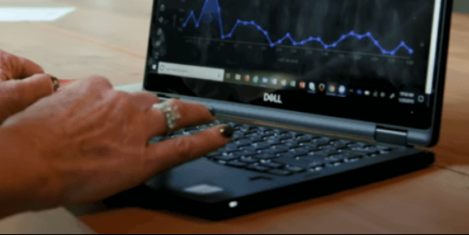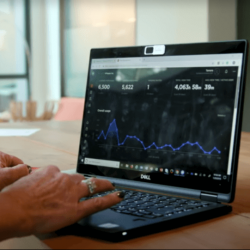To provide the best experiences, we use technologies like cookies to store and/or access device information. Consenting to these technologies will allow us to process data such as browsing behaviour or unique IDs on this site. Not consenting or withdrawing consent, may adversely affect certain features and functions.
The technical storage or access is strictly necessary for the legitimate purpose of enabling the use of a specific service explicitly requested by the subscriber or user, or for the sole purpose of carrying out the transmission of a communication over an electronic communications network.
The technical storage or access is necessary for the legitimate purpose of storing preferences that are not requested by the subscriber or user.
The technical storage or access that is used exclusively for statistical purposes.
The technical storage or access that is used exclusively for anonymous statistical purposes. Without a subpoena, voluntary compliance on the part of your Internet Service Provider, or additional records from a third party, information stored or retrieved for this purpose alone cannot usually be used to identify you.
The technical storage or access is required to create user profiles to send advertising, or to track the user on a website or across several websites for similar marketing purposes.
 Union body the TUC has today launched a new taskforce to look at the “creeping role” of artificial intelligence (AI) in managing people at work. The taskforce launch comes as a new TUC report, Technology managing people: the worker experience, claims that many workers have concerns over the use of AI and technology in the workplace. More →
Union body the TUC has today launched a new taskforce to look at the “creeping role” of artificial intelligence (AI) in managing people at work. The taskforce launch comes as a new TUC report, Technology managing people: the worker experience, claims that many workers have concerns over the use of AI and technology in the workplace. More →





 The UK’s digital skills gap could pose a risk to economic recovery, new research from
The UK’s digital skills gap could pose a risk to economic recovery, new research from 
 The construction of new offices in central London has declined by half (50 percent) in six months as developers and occupiers shift their focus to refurbishment, according to Deloitte Real Estate’s latest
The construction of new offices in central London has declined by half (50 percent) in six months as developers and occupiers shift their focus to refurbishment, according to Deloitte Real Estate’s latest 
 GlobalWebIndex (GWI), together with LinkedIn’s B2B Institute, has launched “
GlobalWebIndex (GWI), together with LinkedIn’s B2B Institute, has launched “
 For a lot of employers, the idea of an employee financial wellness program can be something of an afterthought. That is, beyond providing fair pay and a clear policy regarding taxation and benefits, it can seem unnecessary to take any other action regarding employee finances. What’s becoming more and more apparent, however, is that employers do need to take a more active approach toward implementing employee financial wellness programs.
For a lot of employers, the idea of an employee financial wellness program can be something of an afterthought. That is, beyond providing fair pay and a clear policy regarding taxation and benefits, it can seem unnecessary to take any other action regarding employee finances. What’s becoming more and more apparent, however, is that employers do need to take a more active approach toward implementing employee financial wellness programs. 


 According to new research from
According to new research from 
 Cloud-based access control company
Cloud-based access control company 




 A new report from
A new report from 














November 12, 2020
Stepping back into the workplace arena
by Rachel Houghton • Comment